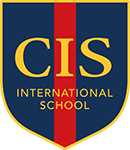

It is difficult to overestimate the importance of choosing kindergarten because this preschool institution becomes a foundation for further education and forms personal qualities. Sending a child to a British kindergarten CIS International School means that you make an input to his future education.
To make sure that this statement is correct, you should understand how preschool education for children is built in the UK and how it differs from Russian.
The British are a nation that is extremely protective of its history and traditions. This approach is also applied in English education, which successfully combines modern developmental methods and all the best that has been accumulated by teachers and educators at schools of different levels during the centuries.
Preschool education in England has rich useful resources and technics. Traditionally it begins at the age of 2-3. Although this education step is not compulsory, most parents prefer to send their children to preschool at this age, and by the age of five young kids become schoolchildren.
In the UK there are preschool institutions of different types with different working hours, funding sources, goals and content of educational programs, pupil’s diversity - for any preferences and financial opportunities (playgroups, family centres, libraries of books and toys, mother and child clubs, religious (in churches), etc.).
This aspect is regulated at the state level: the government program provides free preschool education for children from three years. Each young citizen of foggy Albion is entitled to 38 weeks of study per year, 15 hours a week.
To ensure this right, parents receive state vouchers for the maintenance of a child in a kindergarten. At the same time, each family can spend it as they wish, using either as full payment for educating in a public preschool institution or as material assistance to pay for a more expensive private or commercial kindergarten.
It is important to note that all institutions participating in the program must adhere to programs and methods provided by the British Department of Education - but they are allowed to make their own changes to the main program to focus the educational process on certain activities (for example, learning several languages).
In Russia, a kindergarten is just a place where children spend time while their parents are busy at work (one might say, the alternative to staying at home with their grandmother - and, as is often believed, not the best). The main requirement for a Russian preschool institution is to ensure good nutrition and a proper timetable, which includes entertainment, games, healthy activities, obligatory naps, and a walk in the fresh air.
In English kindergarten the main thing is the learning process, so it is carried out not only at a special time, but constantly.
Preschool education regulated by the state program in Britain should provide:
Speaking about British preschool institutions in Russia, we should notice that, in parallel with general development, pupils learn English, and the high efficiency of teaching is guaranteed by full immersion in the language environment.
According to physiologists and psychologists, a child is completely open to knowledge from the age of three - he is ready to "absorb knowledge like a sponge." Parents who understand this and do not want to lose the most favourable years for learning to choose the British method of preschool education, which effectively takes advantage of the natural abilities of babies.
Of course, you should consider everything when you choose kindergarten. The facilities, infrastructure (after all, the child spends the whole day in the institution), and the correct organization of rest and nutrition, the teaching staff.
But if you are interested in a British program for children of primary preschool age, it is fundamentally important that it is the British who work in the kindergarten - not English-speaking Americans, Canadians or, say, Filipinos, but specialists from the UK.
CIS International School provides a solution. CIS is an international school that provides British education in English with native speakers in different regions (campuses in St. Petersburg, Moscow and Tashkent).
The colors of the rainbow are part of the basic lexicon. Try spending an entire day without naming colors, and you'll see for yourself how hard it is to do without them.
What food is worth trying while in England? Popular soups and meat dishes, pies, puddings, desserts. An overview of the 10 most unusual, famous, and delicious dishes of the national cuisine.
This article describes the types of accents in modern English. The most popular dialects of the English language.
Transcription in English: how to read and pronounce correctly? The difference between pronunciation and spelling in English.
In this article you can learn about the most famous museums that are located in Britain. What these buildings look like and where they are located.
Is knowing a language without grammar possible? For sure, but only to a certain level. This is, for example, how toddlers speak their native language. They can indicate their wishes and problems or ask questions, often twisting words and sentences so sweetly. But it is impossible to have a full command of a language tool without knowing its grammar rules.
In fact, there are some similarities between the two along with important and curious differences. To see the difference between college and university, let us discover the opportunities that their students get during the study years and after the graduation.
To see closer into the practices that will help you improve your English pronunciation let us discover the specific phonetic characteristic of English and the nuances of its sounds vocalization.